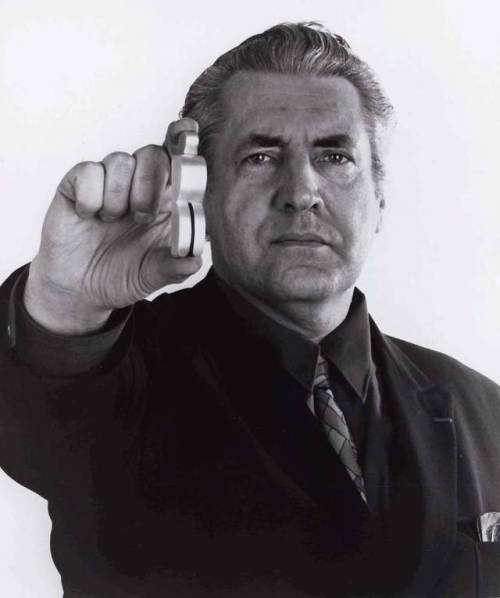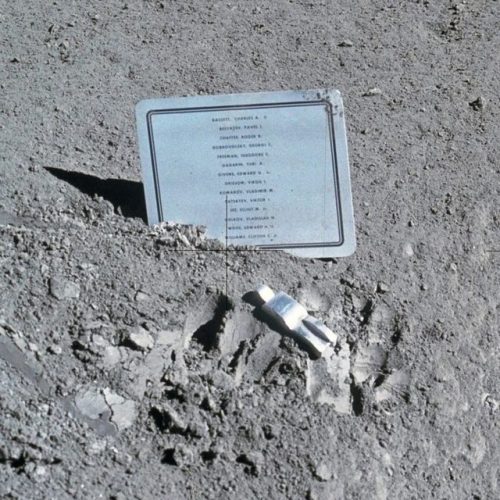
170 posts
Latest Posts by thats-heresy - Page 5
Zum gestrigen Internationalen Gedenktag an den Holocaust lief in vielen Kinos weltweit der preisgekrönte Dokumentarfilm des verstorbenen Regisseurs Claude Lanzmann SHOAH von 1985.
Als Auszug daraus das Interview mit Jan Karski.
Es lebe Israel!
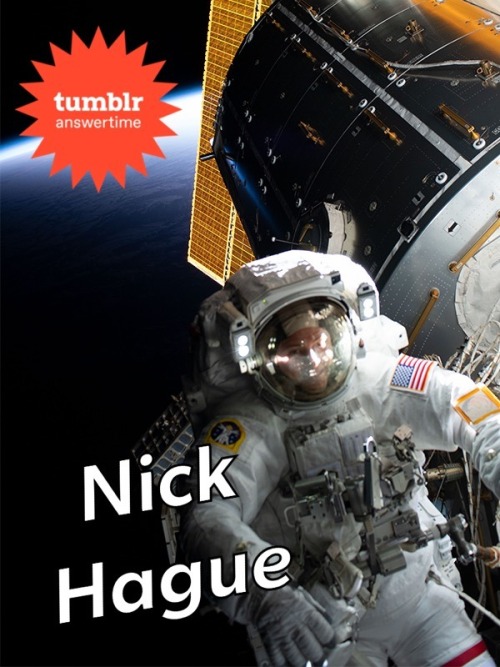
Ever wanted to ask a NASA astronaut a question? Here’s your chance!
NASA astronaut Nick Hague will be taking your questions in an Answer Time session on Wednesday, January 15 from 12pm - 1pm ET here on NASA’s Tumblr! Find out what it’s like to live and work 254 miles above our planet’s surface. Make sure to ask your question now by visiting http://nasa.tumblr.com/ask!
Nick Hague was selected as one of eight members of the 21st NASA Astronaut class in 2013. Hague was the first astronaut from his class to be assigned to a mission which launched on October 11, 2018. Unfortunately, he and his crewmate Alexey Ovchinin, of the Russian space agency Roscosmos, were forced to abort the mission when a rocket booster experienced a malfunction shortly after the launch of their Soyuz MS-10. The aborted spacecraft landed safely.
His first flight to the International Space Station was from March 2019 through October 2019 as a a part of the Expeditions 59 and 60 crew. Together, the crew conducted hundreds of experiments, including investigations into devices that mimic the structure and function of human organs, free-flying robots and an instrument to measure Earth’s distribution of carbon dioxide. While at the International Space Station, Hague conducted three spacewalks, totaling 19 hours and 56 minutes with a total of 203 days in space.

Nick Hague Fun Facts:
Hague was awarded the Order of Courage from the Russian Federation for his actions during the Expedition 57/58 launch abort.
Hague was selected for the Air Force Fellows program where he was assigned as a member of the personal staff in the U.S. Senate, advising on matters of national defense and foreign policy.
He was a top flight test engineer in the U.S. Air Force.
He deployed five months to Iraq in support of Iraqi Freedom, conducting experimental airborne reconnaissance.
He enjoys exercise, flying, snow skiing and scuba.
Follow Nick Hague on Twitter at @AstroHague and follow NASA on Tumblr for your regular dose of space.
The single funniest thing I’ve seen in 2019 (sound on)

Never trust a hippie
😂

Extreme Science: Launching Sounding Rockets from The Arctic
This winter, our scientists and engineers traveled to the world’s northernmost civilian town to launch rockets equipped with cutting-edge scientific instruments.

This is the beginning of a 14-month-long campaign to study a particular region of Earth’s magnetic field — which means launching near the poles. What’s it like to launch a science rocket in these extreme conditions?

Our planet is protected by a natural magnetic field that deflects most of the particles that flow out from the Sun — the solar wind — away from our atmosphere. But near the north and south poles, two oddities in Earth’s magnetic field funnel these solar particles directly into our atmosphere. These regions are the polar cusps, and it turns out they’re the ideal spot for studying how our atmosphere interacts with space.

The scientists of the Grand Challenge Initiative — Cusp are using sounding rockets to do their research. Sounding rockets are suborbital rockets that launch to a few hundred miles in altitude, spending a few minutes in space before falling back to Earth. That means sounding rockets can carry sensitive instruments above our atmosphere to study the Sun, other stars and even distant galaxies.
They also fly directly through some of the most interesting regions of Earth’s atmosphere, and that’s what scientists are taking advantage of for their Grand Challenge experiments.

One of the ideal rocket ranges for cusp science is in Ny-Ålesund, Svalbard, off the coast of Norway and within the Arctic circle. Because of its far northward position, each morning Svalbard passes directly under Earth’s magnetic cusp.
But launching in this extreme, remote environment puts another set of challenges on the mission teams. These launches need to happen during the winter, when Svalbard experiences 24/7 darkness because of Earth’s axial tilt. The launch teams can go months without seeing the Sun.

Like for all rocket launches, the science teams have to wait for the right weather conditions to launch. Because they’re studying upper atmospheric processes, some of these teams also have to wait for other science conditions, like active auroras. Auroras are created when charged particles collide with Earth’s atmosphere — often triggered by solar storms or changes in the solar wind — and they’re related to many of the upper-atmospheric processes that scientists want to study near the magnetic cusp.

But even before launch, the extreme conditions make launching rockets a tricky business — it’s so cold that the rockets must be encased in styrofoam before launch to protect them from the low temperatures and potential precipitation.

When all is finally ready, an alarm sounds throughout the town of Ny-Ålesund to alert residents to the impending launch. And then it’s up, up and away! This photo shows the launch of the twin VISIONS-2 sounding rockets on Dec. 7, 2018 from Ny-Ålesund.

These rockets are designed to break up during flight — so after launch comes clean-up. The launch teams track where debris lands so that they can retrieve the pieces later.

The next launch of the Grand Challenge Initiative is AZURE, launching from Andøya Space Center in Norway in March 2019.
For even more about what it’s like to launch science rockets in extreme conditions, check out one scientist’s notes from the field: https://go.nasa.gov/2QzyjR4

For updates on the Grand Challenge Initiative and other sounding rocket flights, visit nasa.gov/soundingrockets or follow along with NASA Wallops and NASA heliophysics on Twitter and Facebook.
@NASA_Wallops | NASA’s Wallops Flight Facility | @NASASun | NASA Sun Science

Steve Tyler looks like Joker.









The dark and macabre fantasy themed creations of Stefan Koidl - https://www.scififantasyhorror.co.uk/the-dark-fantasy-artworks-of-stefan-koidl/
![How Would Feel If You Were This Far From Earth ? Picture : NASA [1080x1235]](https://64.media.tumblr.com/66b6fd512800aef9eaf776ca9a5468ff/tumblr_pkiiebbcdu1rcl722o1_500.jpg)
How would feel if you were this far from Earth ? Picture : NASA [1080x1235]

Outer space, Planet Earth, and the International Space Station (ISS) photographed on 4 October 2018 “by Expedition 56 crew members from a Soyuz spacecraft after undocking” from the ISS. Photo credit: NASA and Roscosmos [6048 x 4032]

IG: @metamorphosia_fx
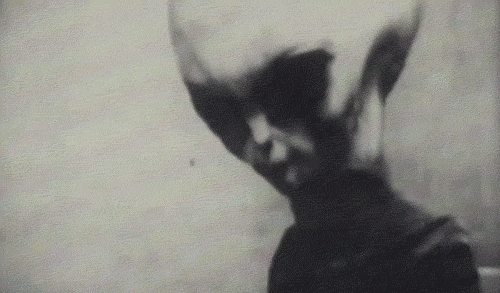

This guys work is really awesome


手指断了 a Email:494193897@qq.com 微博:@手指断了a
– Share via Artstation iOS App, Artstation © 2016

Stickney Crater on Phobos.
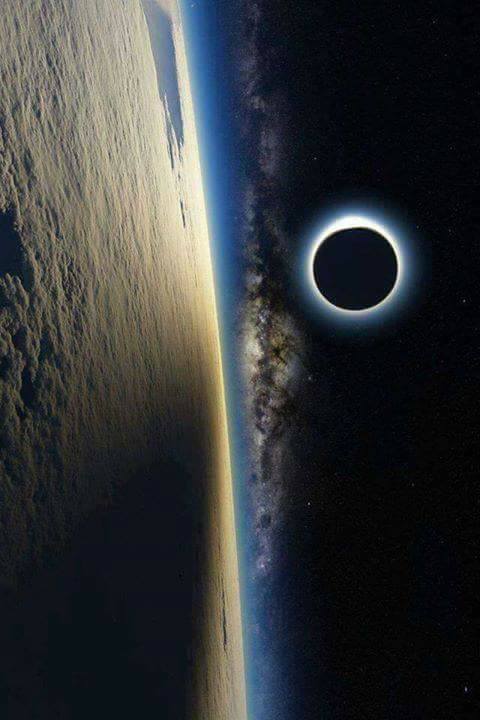
Eclipse From The ISS

Eye Of The Universe

Metallica - 1983
“James Hetfield, Lars Ulrich, Kirk Hammett and Cliff Burton hang in the backyard of the “Metallica Mansion,” El Cerrito, CA.”

